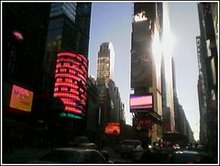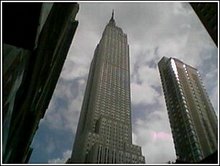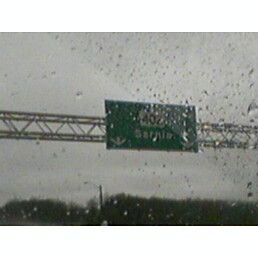
Detroit, Michigan has joined Cleveland, Ohio, on the list of major American Cities that have died. Among the very ill remain Cincinnati, Ohio; St. Louis, Missouri; and Buffalo, New York.
Most tragically, the blame will be firmly placed upon the shoulders of the United Auto Workers, Toyota, and Honda.
The same United Auto Workers who built Mustangs, Chevelles, and Hemis are not to blame. These cars came from an era when domestic manufacturers competed to offer the consumer every type of experience and a well-engineered product free of defects related to the design and engineering process. They proffered a wide range of products that were usually well suited to the market.
When Big Three managers endeavoured to seek their fortunes in saturated markets, they invariably failed. When Big Three managers fail, the city of Detroit suffers. One company chose to offer a product identical in mission and market to the fading product of a competitor. It was ill timed, arriving concurrently with a deep recession. The vehicle was overstyled, overcontented, and the innovations were at best underengineered.
2008? No the year was 1957, when Ford introduced to great fanfare and hoopla, the Edsel Division. The issue was that there were several nameplates, Dodge, Desoto, Chrysler, Mercury, Pontiac, Oldsmobile, and Buick, competing for the same affluent, upper-middle class buyer. However, it is the same market where SUVs thrived for several years.
The same intransigent myopia that pushed the Edsel out into a saturated market became entrenched. The cost of labor, including legacy costs, is nothing compared to the losses faced by major manufacturers when a well-connected manager gets the urge to push the Next Big Thing.
Labor only builds the vehicle.
American labor, Union and non-Union alike, is capable of building world-class products. There is no quality gap between Kentucky Fried Camrys and their Japanese-made equivalents. The Mustangs, Chevelles, and Hemis have spawned an entire cottage industry serving owners with the purpose of keeping these cars in a perpetual state of 1966. When American business decides to compete, no one can keep up.
Some well-connected person in a Detroit office tower decided that the best way to compete was to move into markets which were already proven. The only defense against solid engineering and good craftsmanship was to camouflage archaic technology with leather seats and louder stereos. Turn up that James Blunt song to drown out the squeaks and rattles in his key.
Edsel II. More tacky, less technique.
In the 1958 model year, only one US carmaker grew significantly. That was Kenosha, Wisconsin's American Motors. They reintroduced the austere Rambler American compact, which retained essential styling from 1950 until it was rebodied for the 1961 model year. It was the 1960 model year when the Big Three brought compacts out. Edsel and Desoto both died in calendar 1960, although Chrysler built a few '61 Desotos.
Rambler did not kill Edsel and DeSoto: a poor understanding of the market and the needs of the consumer did. Toyota has posted a loss on their range owing to the failing sales of large pickup trucks and SUVs. It was not Toyota's reputation, quality, or engineering which lost money: it was an overcommitment to products which did not suit the desires of the market.
Corollas, Priuses, and those ugly little Scions that look like refrigerators are still selling.
Detroit did not die from the work of her citizens, but the evil which springs from the minds of those who feel it is their perogative to profit from idleness. Millions of men and women toiled in Detroit's factories, building machines which served American families well for generations.
They have been held accountable for decisions made in air-conditioned offices far from the grime and sweat of the factory floor. No such judgement has been offered to the executives who approved inferior, unsuitable, or just plain bad vehicles for these workers to build.
The executives squeezed value out of their product, assuring the death of Detroit, putting all concerned on the unemployment line. Only a few got what they deserved.







No comments:
Post a Comment